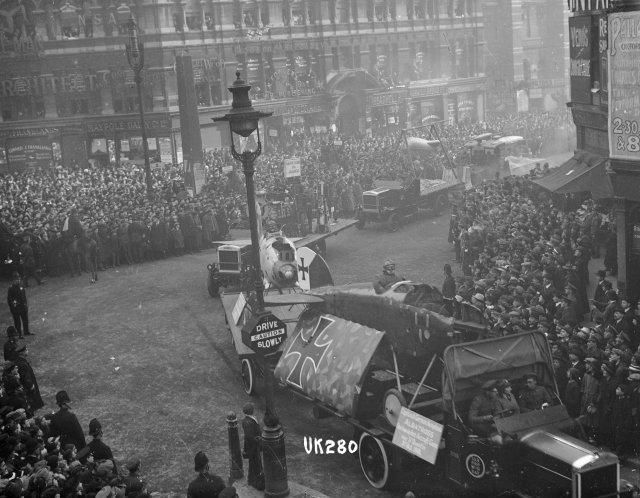We are commemorating the centenary of the entry of Great Britain into the Great War today although it actually broke out over several days with Germany declaring war on France on August 3rd and this country declaring war on Germany on August 4th. So in August 1914 my grandfather rode off to war – he was taken prisoner in November and sat out the rest of the conflagration in relative safety – and 25 years later his son, my father, did the same again. Then 25 years after that we were listening to the Beatles, looking at miniskirts and admiring E-Type Jaguars.
Fifty years on from that we can sit on the bed watching documentaries on the subject on our mobile phones or make video calls over Skype to our cousins in Australia at no cost while drones fly around photographing everything from army depots to outdoor swimming pools.
I have before now wondered whether parallels can or should be drawn with the growing tensions between Russia and most of the rest of Europe but have decided that, for the moment at least, doing so would be taking the search for historical comparisons and applying geopolitical speculation a bit too far.
We should, nevertheless, not forget the events which were set in motion during those days of early August 1914. The next European war as a result of the deep desire to prevent anything similar from being able to happen again. The EU, with all its faults, was established by both sides, and for 69 years that has worked – a huge advance on the peace which reigned on the continent from 1815 to 1870 which was, at the time, no mean feat in itself.
Then there is the eurozone
That brings me neatly to the eurozone, the great achievement of those who declared “Never again!” and the growing fears of deflation which played their own part in in a lousy week in the markets which saw the Dow fall by 2.75%, the FTSE by 1.65%, the CAC by 2.95% and the Dax by a mighty 4.50%.
There is clearly uncertainty about what caused the drop. Is it the eurozone? Or maybe the Russian situation? Perhaps it is the Middle East? Banco Espirito Santo? How about US GDP and its inevitable effect on the Fed’ monetary policy? Who knows. One way or the other, the question which will be on everybody’s lips is whether this is merely a bit of volatility in the thin summer markets or is it perhaps the inflection point many have been looking for where being long risk for its own sake has had its day?
I might not, despite many people’s impression, have been in the markets since the days of miniskirts, the Beatles and E-Types – I saw a very pretty powder blue Series 1 roadster on the King’s Road in Chelsea this morning which is a throwback to the 60s in itself – but I have been here for enough summers to have learnt not to take swings in late July and early August any too seriously.
The iTraxx S21 Xover index had a horrid week blowing out to close at 276 on Friday – the contract tight was 219 on 9th June – but indications are in early markets this morning that Friday’s losses and even a bit more might have been regained with the first pre-opening call at 261.5 which is 14.5 bps tighter than the close. Perhaps the call should be “End of the World postponed until further notice….”
Here in the UK, the Commonwealth Games in Glasgow drew to a close yesterday and, the jollifications of the Edinburgh Festival aside, Scotland can now begin to really focus on its referendum. Conventional wisdom still has it that the motion will be rejected. Over the week-end I had the pleasure of attending a party, at which one of the guests had been a non-executive director at one of the two big Scottish banks. Thus he had enjoyed the pleasure in meeting the SNP leader, Alex Salmond, at close quarters.
His far more solidly founded view coincided with mine in that we believe that Salmond and the SNP might be quietly praying for the referendum to fail. His policy is based on achieving “Devo Max” – that being the largest possible level of regional government independence while all still being tacitly underwritten by the Sassenachs and by central government in Westminster. An actual vote for independence has quite obviously, despite the fighting talk, not been catered for and heaven help the SNP and the people of Scotland if it happens.
What the gentleman in question did allude to – and this being something which had not previously crossed my mind – is that with or without a vote for full and sovereign independence a swing to the SNP and away from the rather English looking Labour Party in the upcoming general elections in 2015 is perfectly possible, thus scuppering the chances of the Rt Hon Ed Miliboy of chasing the equally weak and clueless looking David “Call me Dave” Cameron out of 10 Downing Street.
I don’t think anybody in particular has gone so far as to add the Scottish independence vote to the list of potential problems which jointly spooked markets last week but it will surely not be long before they do.

